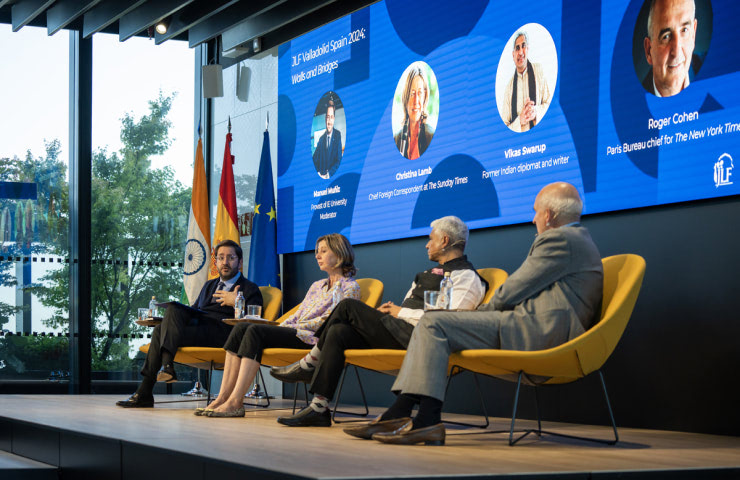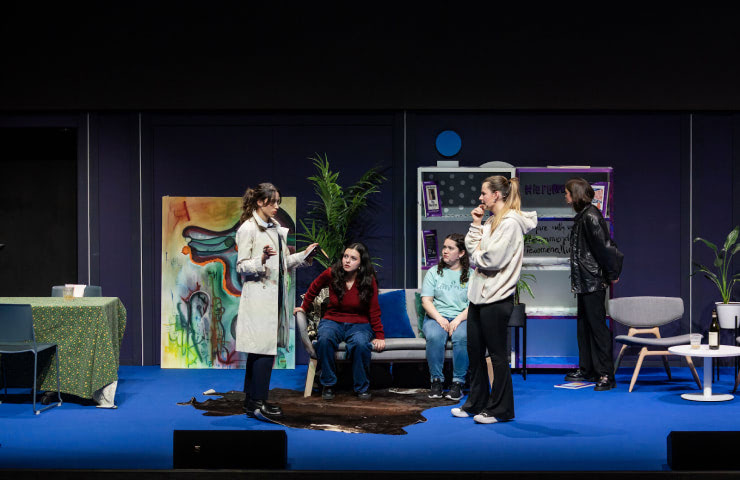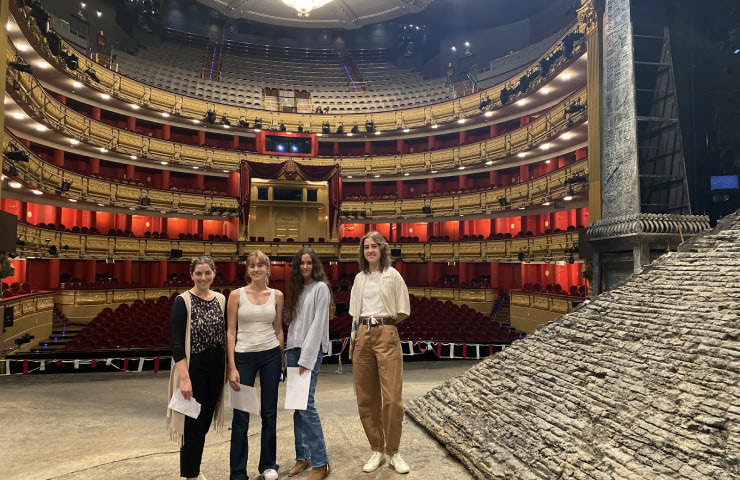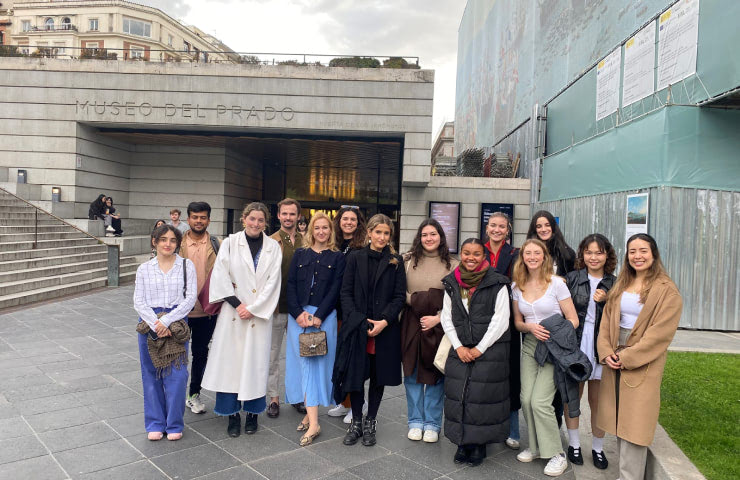29/07/2024
IE School of Humanities’ extracurricular activities aren’t just about enriching the IE Experience. They can make a big difference to your future career.
Have you ever wondered why we at IE University value the humanities so highly that we chose them to represent one of our core values? We believe that studying the humanities shapes better professionals, building innovation and resilience into our well-rounded graduates and better preparing them to succeed in a competitive labor market.That’s why all of our programs’ curricula contain a strong influence from the humanities, and they are a common theme in our activities both inside and outside the classroom. Indeed, IE University has recently proudly announced the launch of IE School of Humanities.
Backed by UNESCO, its mission is to train leaders in the intertwined disciplines of the humanities, technology and leadership.

This clear demonstration of our commitment to the humanities is just part of the picture. Aside from the official Bachelor in Humanities, there are IE Impact’s multidisciplinary courses open to students from all our schools. For example, specialist programs in critical thinking, communication and public speaking and time-management skills make our graduates more confident, more resilient and effective professionals.
Moreover, humanities-related electives perfectly complement our graduate students’ chosen fields of study. And just as importantly, this is backed up by a multitude of extracurricular initiatives in the humanities sphere.
The value of extracurricular activities in the humanities
While academic excellence is hugely important when it comes to your future career, many world-leading employers are looking for more. And that extra purpose can often be found in your extracurricular activities.
What you choose to get up to in your own time shows your passion for what matters to you. Giving up time, effort and energy for what you care about—whether that’s sports, volunteering, the arts, competitions or anything else—shows academic institutions and potential employers alike what sort of person you are.

Pursuing extracurriculars in the humanities can help you build transversal skills in public speaking, critical thinking, debate, organization and more.
Furthermore, extracurricular exposure to the humanities is important simply because we’re all human beings. Mixing with others, experiencing different worldviews and discovering diverse experiences and perspectives broadens your own horizons. But it also makes you more adaptable, more resilient and more innovative. And that can make the difference in securing that key position you’re after.
Innovation in a global hub
IE School of Humanities places a particular emphasis on innovation, and there’s no better place to showcase the dynamic intersection of art, creativity and technology than Madrid. There are numerous multidisciplinary endeavors going on within IE University’s ecosystem, and the Spanish capital’s vibrant cultural landscape serves as the perfect backdrop for them.
From contemporary art presentations and classical music concerts to exhibitions and fairs, students, faculty and staff alike enjoy myriad opportunities. They immerse themselves in humanities-related events that explore the dynamic interplay between different forms of art and culture.
This exposure to creative activities and performances can spark innovation and new ideas in other areas, too.

Multidisciplinary extracurricular activities in humanities
Among the many activities organized by the IE Community, we recently celebrated a series of performances at Teatros del Canal. Featuring cutting-edge shows that blended electronic music and visual arts, one highlight was the multidisciplinary performance by Dasha Rush. The Berlin-based Russian artist is known for pushing the boundaries of contemporary music. Her show captivated audiences with its experimental approach to sound and visuals.
Another standout performance was “Byetone” by Olaf Bender, who mesmerized the audience with his abstract integration of lighting and music. These experiences not only enriched our students’ understanding of contemporary art forms but also inspired them to explore new realms of creativity.
Perhaps the most memorable moment recently, though, was Francis Ford Coppolla’s visit to IE University. The legendary film director, producer and screenwriter joined us to launch IE School of Humanities, while also marking the closing of “The Next 50.” The Next 50 examined future challenges we’ll face in education, the humanities, tech and more.

Addressing the event, IE University’s president Diego del Alcázar Silvela described the humanities as “a weapon loaded with the future.”
Extracurricular humanities activities to shape the future
For more evidence of the value placed on the humanities at IE University, and their central role in developing successful graduates, look no further than the IE Foundation Prizes in the Humanities. Set up to showcase unique perspectives, critical thinking and developments in digital art, the prizes honor the humanistic vision of our educational community.
Pursuing extracurricular activities in the humanities shapes us as people and helps us understand the world and our place in it. But crucially, they’ll also play an important role in your own future. Through the humanities, we gain a fresh vision of the future for ourselves and for society.








